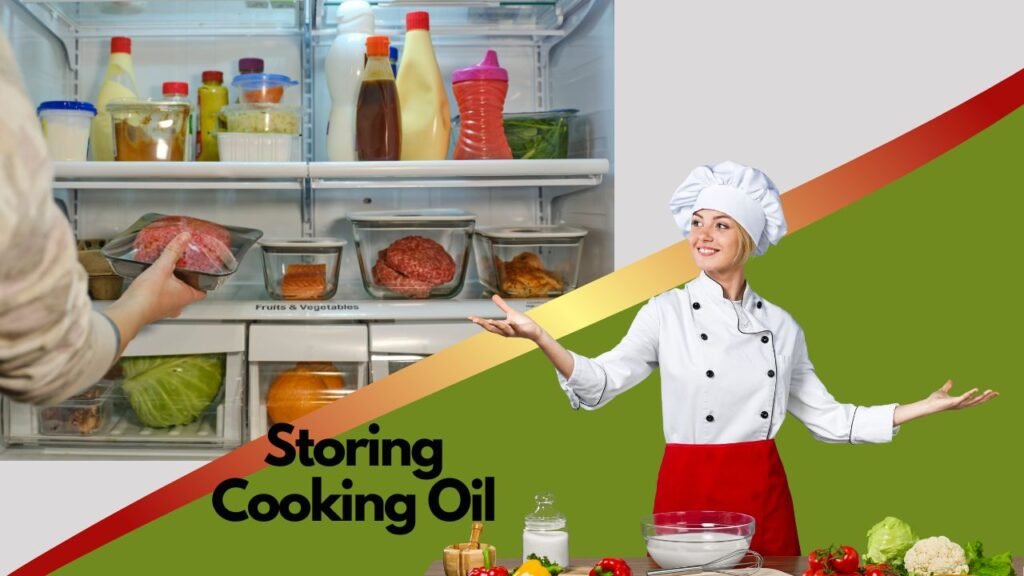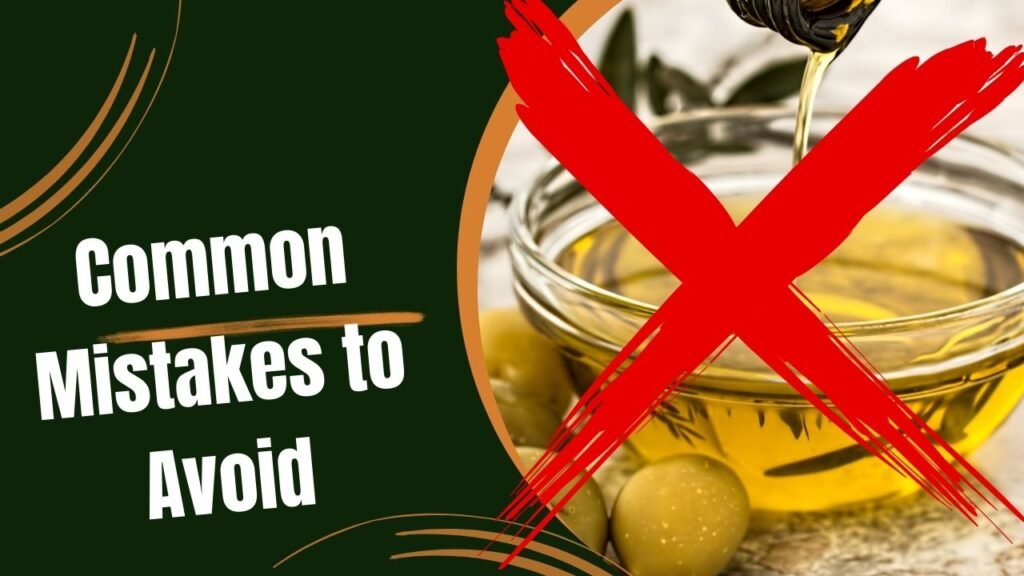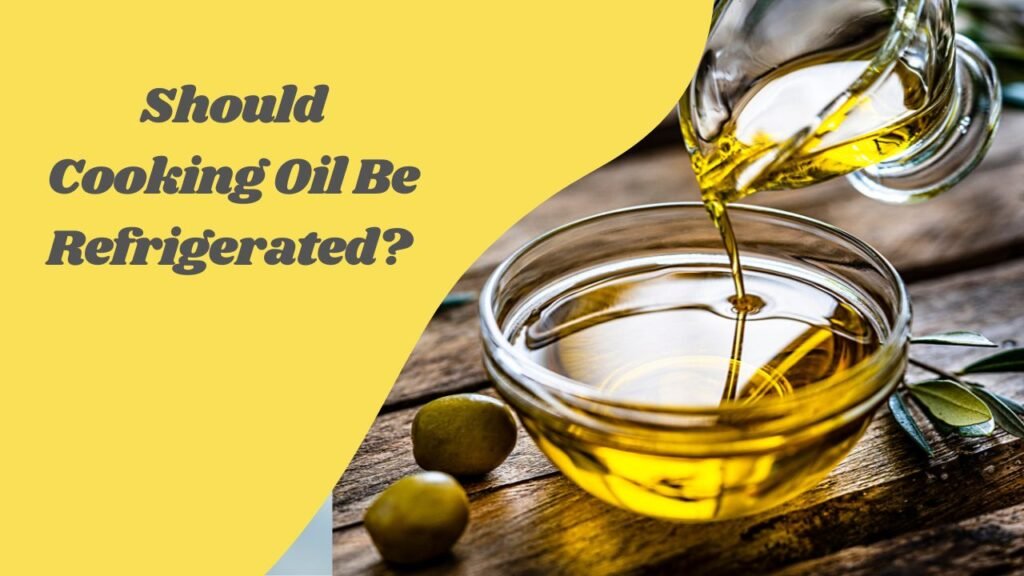Picture this: you’ve just bought a fresh bottle of your favorite cooking oil, eager to whip up a delicious meal. But a lingering question pops into your mind—should cooking oil be refrigerated? This seemingly simple query can impact the longevity, flavor, and overall quality of your oil. Let’s embark on a flavorful journey to explore whether refrigeration is the right choice for your cooking oils and uncover the best storage practices to keep them fresh and delicious.
Why Storage Matters for Cooking Oil
Cooking oil is more than just a kitchen staple; it plays a pivotal role in the taste, texture, and nutritional value of your dishes. Proper storage can extend the shelf life, prevent spoilage, and maintain the oil’s quality. But with the variety of oils available, each with its own characteristics, understanding should cooking oil be refrigerated becomes essential.
The Science Behind Cooking Oil Storage
To grasp why storage conditions matter, it’s helpful to understand the factors that affect cooking oil’s longevity:
- Light Exposure: Light accelerates the oxidation process, leading to rancidity.
- Temperature Fluctuations: Extreme temperatures can break down the oil’s molecular structure.
- Air Exposure: Oxygen can cause the oil to oxidize and spoil faster.
By managing these elements, you can keep your cooking oil fresh and flavorful for longer periods.
Should Cooking Oil Be Refrigerated? The Verdict
When Refrigeration Makes Sense
Should cooking oil be refrigerated depends largely on the type of oil and your usage habits. Here are some scenarios where refrigeration is beneficial:
- High-Risk Oils: Oils rich in polyunsaturated fats, such as flaxseed, walnut, and certain vegetable oils, are more prone to oxidation. Refrigerating these can significantly extend their shelf life.
- Delicate Flavors: Oils like extra virgin olive oil and sesame oil have delicate flavors that can deteriorate if not stored properly. Refrigeration helps preserve their nuanced tastes.
- Long-Term Storage: If you buy oil in bulk or don’t use it frequently, refrigeration can prevent spoilage and maintain quality.
When Refrigeration Isn’t Necessary
Conversely, some oils are more stable and don’t require refrigeration:
- High-Smoke Point Oils: Oils like peanut, canola, and sunflower have higher smoke points and are less prone to rancidity, making pantry storage sufficient.
- Frequent Use: If you use an oil regularly, keeping it in a cool, dark pantry away from heat sources is typically adequate.
Table: Refrigeration Needs of Common Cooking Oils
| Cooking Oil | Should Be Refrigerated? | Best Storage Method |
|---|---|---|
| Extra Virgin Olive | No | Cool, dark pantry in dark glass bottle |
| Canola Oil | No | Pantry or cupboard away from heat |
| Flaxseed Oil | Yes | Refrigerator in a sealed container |
| Peanut Oil | No | Pantry in a well-sealed container |
| Sesame Oil | Optional (for longevity) | Pantry or refrigerator for delicate flavors |
| Coconut Oil | No | Pantry; solidifies at cooler temps |
| Walnut Oil | Yes | Refrigerator to prevent rancidity |
| Sunflower Oil | No | Pantry in a sealed container |
Factors to Consider When Deciding to Refrigerate
Type of Oil
Different oils have varying levels of stability. Polyunsaturated and delicate oils benefit more from refrigeration compared to highly saturated or stable oils.
Frequency of Use
If you use an oil regularly, the exposure to air is minimal, and storing it in a cool, dark place is usually sufficient. Infrequently used oils might benefit from the added protection of refrigeration.
Shelf Life
Consider the oil’s shelf life. Refrigeration can extend the usability of oils that spoil quickly, ensuring you get the most out of your purchase.
Flavor and Aroma
Some oils lose their vibrant flavors and aromas when not stored properly. Refrigeration helps maintain these sensory qualities, especially for premium oils.

Best Practices for Storing Cooking Oil
Regardless of whether you choose to refrigerate your cooking oil, following these best practices will help maintain its quality:
1. Choose the Right Container
- Dark Glass Bottles: Protect oils from light exposure, which can cause oxidation.
- Opaque Containers: Similar to dark glass, these limit light penetration.
- Stainless Steel: Non-reactive and durable, ideal for long-term storage.
2. Keep It Sealed
Always ensure the bottle is tightly sealed to minimize air exposure. Oxygen can lead to rancidity, so keeping the container closed when not in use is crucial.
3. Avoid Heat Sources
Store oil away from the stove, oven, and other heat-emitting appliances. Excessive heat can degrade the oil, affecting both flavor and nutritional value.
4. Maintain a Consistent Temperature
Fluctuating temperatures can hasten the deterioration of cooking oil. Whether you choose to refrigerate or store in a pantry, aim for a stable environment.
5. Label with Purchase Date
Keeping track of when you bought the oil helps ensure you use it within its optimal timeframe. This is especially useful for oils stored in the refrigerator, where you might forget about them.
Table: Tips to Extend the Freshness of Cooking Oil
| Tip | Description |
|---|---|
| Use Dark Bottles | Protects oil from light and slows oxidation |
| Keep It Sealed | Reduces air exposure, preventing rancidity |
| Avoid Temperature Swings | Maintains oil’s stability and quality |
| Purchase Smaller Quantities | Minimizes time oil spends exposed to air once opened |
| Store Properly | Follow specific storage recommendations for each oil type |

Common Mistakes to Avoid
Even with the best storage practices, it’s easy to make mistakes that can shorten your cooking oil’s shelf life:
1. Storing Near Heat Sources
Avoid placing oil near the stove, oven, or dishwasher. Heat accelerates the breakdown of oils, leading to rancidity and off-flavors.
2. Leaving the Bottle Open
An open bottle exposes the oil to air, which can cause it to spoil quickly. Always keep the cap tightly closed.
3. Using Transparent Containers
Clear bottles let in light, which can degrade the oil. Opt for dark or opaque containers to protect your oil from light exposure.
4. Ignoring Expiry Dates
Be mindful of the oil’s shelf life. Using oil past its prime can negatively affect your dishes and potentially cause digestive issues.
5. Mixing Different Oils
Different oils have different storage needs. Mixing them can complicate storage and potentially lead to quicker spoilage.
How to Tell If Cooking Oil Has Gone Bad
Ever wondered how to make sure your cooking oil is still good? Here are some signs to watch for:
Smell
Rancid oil has a distinct, unpleasant odor. If it smells off or stale, it’s time to toss it.
Taste
Spoiled oil will have a bitter or sour taste. A small taste test can confirm if it’s still good.
Appearance
Check for any changes in color or consistency. Cloudiness or separation can indicate spoilage.
Texture
Some oils may become sticky or overly thick when they’ve gone bad.
Personal Reflections: My Oil Storage Habits
I used to keep all my cooking oils in the pantry, thinking that was the best way to store them. However, I often noticed that my extra virgin olive oil would lose its vibrant flavor over time. After some research, I decided to refrigerate it, and the difference was remarkable. The oil stayed fresher longer, and the flavor remained robust. This small change made a big impact on my cooking, proving that should cooking oil be refrigerated really depends on the type and your storage habits.
FAQs About Should Cooking Oil Be Refrigerated
1. Should I refrigerate olive oil?
For regular use, storing olive oil in a cool, dark pantry is sufficient. However, if you have extra virgin olive oil that you don’t use frequently, refrigerating it can extend its shelf life and preserve its flavor.
2. Does refrigeration affect the flavor of cooking oil?
Refrigeration can help maintain the flavor of delicate oils by slowing down oxidation. However, some oils may become cloudy or solidify when chilled, but this is reversible by bringing them back to room temperature.
3. Can I freeze cooking oil?
Freezing is not recommended as it can alter the oil’s texture and make it difficult to use. Refrigeration is a better option for extending shelf life without compromising quality.
4. How long does cooking oil last in the refrigerator?
Refrigerated cooking oil can last up to a year, depending on the type. Always check for signs of spoilage before use.
5. What is the best way to store large quantities of cooking oil?
For large quantities, consider using airtight, dark glass containers and storing them in a cool, dark place or the refrigerator to maximize freshness and prevent spoilage.
Table: Shelf Life of Common Cooking Oils
| Cooking Oil | Shelf Life (Unopened) | Shelf Life (Opened) | Best Storage Method |
|---|---|---|---|
| Extra Virgin Olive | 18-24 months | 6 months | Pantry or refrigerator for long-term |
| Canola Oil | 12 months | 6 months | Pantry |
| Flaxseed Oil | 6 months | 3 months | Refrigerator |
| Peanut Oil | 1 year | 6 months | Pantry |
| Sesame Oil | 1 year | 6 months | Pantry or refrigerator |
| Coconut Oil | 2 years | 1 year | Pantry |
| Walnut Oil | 6 months | 3 months | Refrigerator |
| Sunflower Oil | 1 year | 6 months | Pantry |
Final Thoughts
Should cooking oil be refrigerated? The answer varies depending on the type of oil and your storage habits. While some oils benefit from the extended freshness that refrigeration provides, others remain perfectly stable in a cool, dark pantry. By understanding the specific needs of each type of oil and following best storage practices, you can ensure that your cooking oils remain fresh, flavorful, and ready to enhance your culinary creations.
Remember, a little knowledge goes a long way in the kitchen. So, next time you reach for that bottle of sesame oil or olive oil, you’ll know exactly how to store it for maximum freshness and flavor. Happy cooking!


